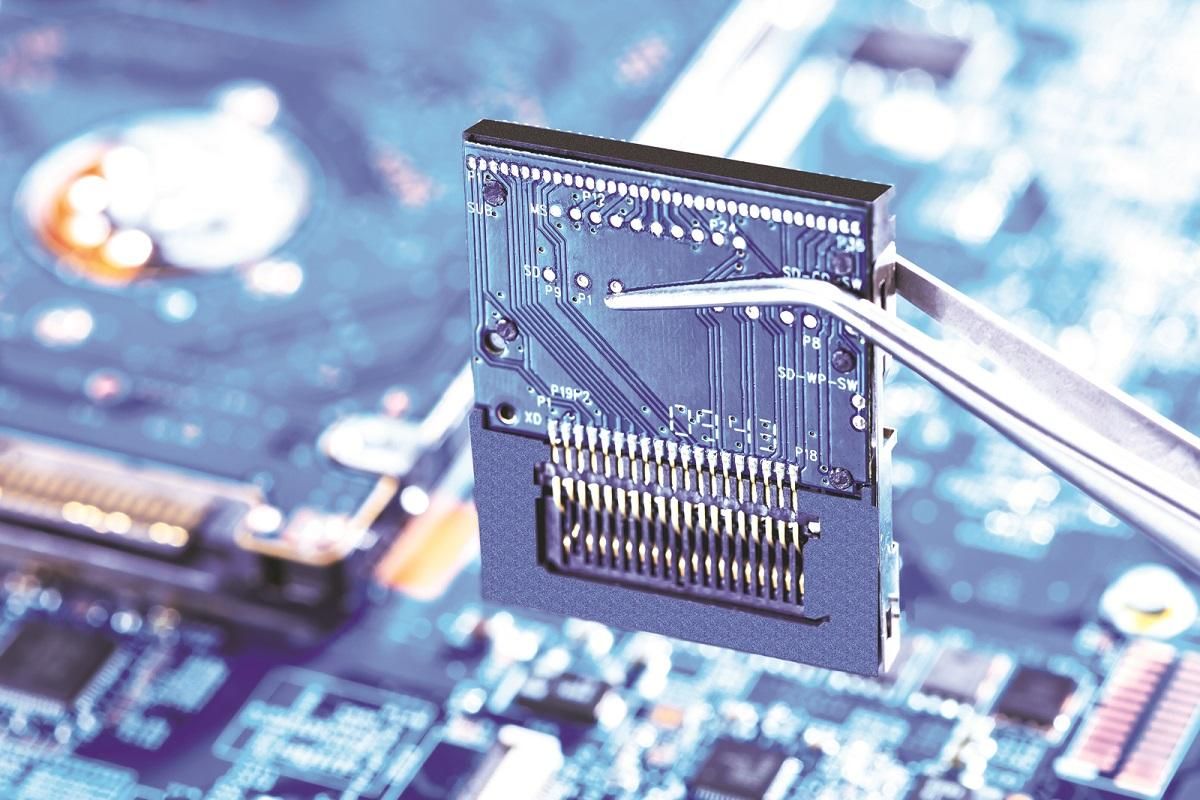[ad_1]
)
“Two large American conglomerates are a part of the Assam plant, and a majority of the production from the facility will be exported,” said Vaishnaw
The Union Cabinet on Thursday approved Rs 1.26 trillion worth of investments in three semiconductor plants, including a Tata group proposal to build the country’s first major chip fabrication facility at Dholera in Gujarat.
It also cleared a separate Tata proposal for a chip assembly plant in Morigaon, Assam, and another by CG Power in Sanand, Gujarat. The work on all three projects is expected to begin in the next 100 days.
The semiconductor fabrication unit in Dholera by Tata Electronics, in partnership with Powerchip Semiconductor Manufacturing Corp (PSMC), Taiwan, is expected to be set up with a total investment of Rs 91,000 crore ($11 billion); it is likely to create 20,000 direct and indirect skilled jobs.
The proposed plant will manufacture high-performance computing chips with 28nm technology. Earlier, it was understood that India would be focussing on manufacturing 40nm chips. The plant is projected to have a total capacity of 50,000 wafer starts per month (WSPM).
“One wafer can have roughly 5,000 chips in it. So, practically this unit will produce around 3 billion chips in a year,” said Ashwini Vaishnaw, Union electronics and IT minister, at a press conference after the Cabinet meeting.
The chips produced at the Dholera facility shall cater to eight broad sectors, including high-power computing, electric vehicles, telecom, defence, consumer electronics, automobile, and power electronics, the minister said.
“A typical semiconductor fab timeline for production is 3-4 years. But will try to compress it. Our country has today developed the assembly, testing, marking, and packaging (ATMP) technology. Over the past many months, we have been able to develop the ATMP technology,” he further said.
Besides the Dholera plant, the Tata group (Tata Semiconductor Assembly and Test, or TSAT) will set up a semiconductor plant in Morigaon with an investment of Rs 27,000 crore. It is expected to generate 27,000 direct and indirect jobs.
“Two large American conglomerates are a part of the Assam plant, and a majority of the production from the facility will be exported,” said Vaishnaw.
N Chandrasekaran, chairman, Tata Sons, said: “We are in a unique time for the electronics manufacturing market globally and the world is seeking a more secure and resilient electronics supply chain. With our announcement of the semiconductor fab and this strategic project in semiconductor assembly and test, we will be enabling our global customers to base a key part of their semiconductor value chain in India.”
The third approval came in for CG Power’s proposal, in partnership with Renesas Electronics Corporation, Japan, and Stars Microelectronics, Thailand. They will set up a semiconductor unit in Sanand with an investment of Rs 7,600 crore.
CG Power said the three companies will subscribe in one or more tranches to equity capital of the JV company. CG Power is to hold the highest stake at 92.34 per cent for an investment of $205 million, followed by Renesas at for 6.76 per cent for a $15 million investment, and Stars at 0.9 per cent for $2 million.
Renesas is a leading semiconductor company focussed on specialised chips. It operates 12 semiconductor facilities and is an important player in microcontrollers, analog, power, and system on chip (SoC) products. The plant will have a total capacity of 15 million per day.
About the Dholera plant, Randhir Thakur, CEO & MD, Tata Electronics, said: “Our partnership with PSMC provides access to a broad technology portfolio in leading edge and mature nodes, including 28nm, 40nm, 55nm, 90nm & 110nm, and also collaboration for high volume manufacturing.”
Frank Hong, chairman, PSMC, said: “Semiconductor industry presents a large and growing opportunity, and India is uniquely placed to capture this opportunity. At one end, India has a large and growing domestic demand, and at the other, global customers are looking at India for supply chain resilience. There could not have been a better time for India to make its entry into the semiconductor manufacturing industry. This partnership has the potential to redefine the contours of global semiconductor manufacturing and we are looking forward to collaboration with Tata Electronics.”
TSAT, on the other hand, is developing indigenous advanced semiconductor packaging technologies, including flip chip and ISIP (integrated system in package). The Assam plant will have a capacity of 48 million per day.
The clearance of these plants is of significance for India as it sets its eyes on the global semiconductor manufacturing space. Besides these three projects, US chip giant Micron is setting up a plant in Sanand, Gujarat.
These units are expected to generate direct 26,000 advanced technology jobs and about 100,000 indirect jobs, said Vaishnaw.
He further informed that subsidies worth Rs 59,000 crore had already been given out of a total of Rs 75,000 crore for all four plants, including Micron’s, under the production-linked incentive (PLI) scheme.
“Eight states have shown interest in setting up semiconductor manufacturing facilities,” the minister added.
First Published: Feb 29 2024 | 9:15 PM IST
[ad_2]
Source link
